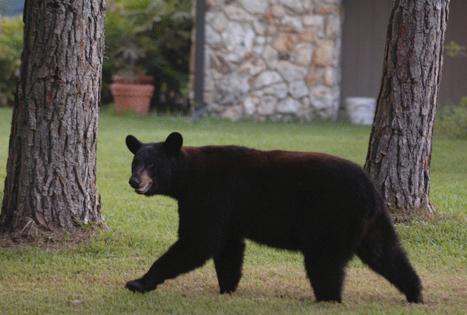Bear advocates file legal challenge to Florida's bear hunt
Published in News & Features
ORLANDO, Fla. — Florida bear hunt opponents, unable to dissuade state wildlife commissioners last week from authorizing a sanctioned killing of the once imperiled species, are now trying their luck in court.
This year’s bear hunt, set for 23 days in December, would be the first in Florida since 2015 when hunters killed an unexpectedly high 304 bears in two days, forcing a shutdown that has lasted a decade.
Bear Warriors United, a not-for-profit organization based in Seminole County, filed a 53-page challenge Friday with the Division of Administrative Hearings, arguing the state Fish & Wildlife Conservation Commission, or FWC, failed to follow rules requiring that “sound research, science and management techniques should prevail over politics when it comes to wildlife conservation and management.”
By taking their case to an administrative law judge, the group is hoping to speed the legal process as the awarding of hunt permits looms, perhaps as soon as next month.
Tallahassee attorney Thomas Crapps, providing pro bono representation of Bear Warriors United, said in the filing that the hunt “is based on stale facts from a 2014-2015 bear population study and is directly contrary to FWC’s own 2019 Bear Management Plan.”
He also argued the agency’s governing board violated its constitutional mission by giving FWC’s executive director, rather than its appointed board, “unbridled authority to issue permits to kill bears annually without any guidance or scientific facts.” That decision removes the public’s right to be heard, Crapps argued.
Crapps’ co-counsel is Volusia County lawyer Raquel Levy, whose teen-age daughter, Bella Schwartz, addressed FWC commissioners last week to argue against the hunt. “We believe conservation doesn’t begin and end with a bullet,” the teen told them.
Fish & Wildlife has not yet responded to the Bear Warriors complaint.
Much of the debate preceding FWC’s August 13 vote for a hunt centered on how much science the agency used to devise its plan for a 187-bear harvest.
During the meeting’s public comment period, Scott Thomas, a wildlife management biologist who identified himself as president of the North Florida chapter of Safari International, lobbied for the hunt. He said Florida’s rebounding population of black bear has grown beyond the peninsula’s carrying capacity, leading to rising numbers of human-bear conflicts, pet clashes and vehicle collisions.
FWC estimates Florida’s black bear population at about 4,000 animals with about 1,200 in Central Florida.
“There is no check on Florida’s bear population and it will continue to grow unless actively managed,” Thomas said.
He warned that overpopulation could lead to “cruel deaths” of bears by starvation, disease and other means. Already about 300 bears are killed every year by vehicles while cross roadways, an FWC spokesperson said.
But an email attached to the Bear Warriors petition, dated Aug. 8 to Morgan Richardson, FWC’s director of hunting and game management, took issue with that argument. It came from Clay Henderson, who served on Florida’s Constitution Revision Commission in 1998 and helped draft language creating the wildlife agency.
He said the proposed rules for the bear hunt “run afoul” of the stated intent that FWC base decisions on science.
“Moving forward, FWCC is flying blind. By the state’s own admission it is challenging for researchers to visually observe bears and directly count their numbers. Indeed, black bear population numbers are out of date,” his email noted. “The last defensible numbers were developed in 2017, and the agency’s bear management plan calls for the next full census report to be completed in 2029.”
He said the 187 “harvest” or kill quota proposed for the December hunt rely on outdated population estimates.
“These estimates do not account for population lag after the major mortality event that was the 2015 hunt,” he wrote.
FWC divides the state into seven bear management zones. It is not allowing hunting in three areas of the state that each have bear populations estimated under 200 animals.
Henderson also contends in his email that the hunt “places Florida’s unique subspecies of black bear at risk of renewed population decline and irreversible ecological loss.”
Wildlife commissioners approved a permit-drawing process that will be open to anyone paying a $5 entry fee. The process does not include a limit on the number of times people can enter, but people whose names are drawn will only be able to purchase a single permit.
Floridians will pay $100 for permits. Non-Floridians will be limited to 10 percent of the permits, which will cost them $300.
FWC has not yet announced details, but a spokesperson said an announcement could come later this week.
_____
©2025 Orlando Sentinel. Visit orlandosentinel.com. Distributed by Tribune Content Agency, LLC.







Comments